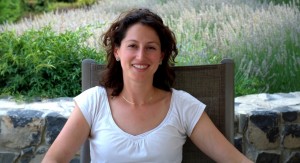by Sue Russoniello
Spring is almost here! While I was doing yard work on Saturday and it began to snow, I was also listening to the birds sing while they frolicked in the trees, which is definitely a sign of spring. The end of winter and arrival of spring is inevitable. It happens every year, even though right now we wonder if it ever will be warm enough to put away the winter coat.
Another inevitability is that as the semester winds down, students have turned their focus to finding summer and full time jobs. A student I know said to me this morning that her second round interview for Friday is a “last ditch effort” at finding a job for the summer. No, I told her, don’t give up. There are jobs out there to be had. Not everyone has lined up something yet. Look at the student survey results on our website; you’ll see that many students find their jobs and internships in April or May; some even later, though it might seem like you are the only one still looking. Keep an open, positive focus on finding an interesting thing to do this summer, or a full time opportunity if you’re graduating.
I know you’ve heard it before, but take the advice to heart. Continue to attend our workshops and programs, and stick around to speak with the alumni and other people on the panel or leading the workshop. Network with alumni, friends and family. It’s inevitable that you’ll make connections, hear about interesting opportunities, talk with someone who is very willing and able to help you with your search. Even if a contact doesn’t pan out for the immediate search, you never know when it’ll be helpful in the future, so make a note of their name and contact information and stay in touch with them.
Look around you. Talk with people to whom you don’t usually reach out. Go to places where you might see and meet new people; talk about different things you’ve done and are interested in, even with people you think you know well, and you’ll be surprised what a small world it is. Meeting a friend’s new girlfriend, you discover that her mother knows your mother. Or that her sister studied abroad in the same program at the same time as your brother. An applicant for a job in our office turned out to be a friend of my soon to be daughter-in-law. Honestly, that gave him a leg up on the other candidates, and worked out well for both of us. With a bit of careful directing of the conversation, and prudent follow-ups, these connections might lead to job opportunities we would not have found otherwise.
So as inevitable as it is that winter leads to spring, it is also inevitable that you smart, hard-working Penn students will find great jobs. Some may take longer than others to find them, and you might not find your “dream” job right away. But keep looking. Keep a positive outlook. Keep reaching out to people, and the inevitable will happen.



